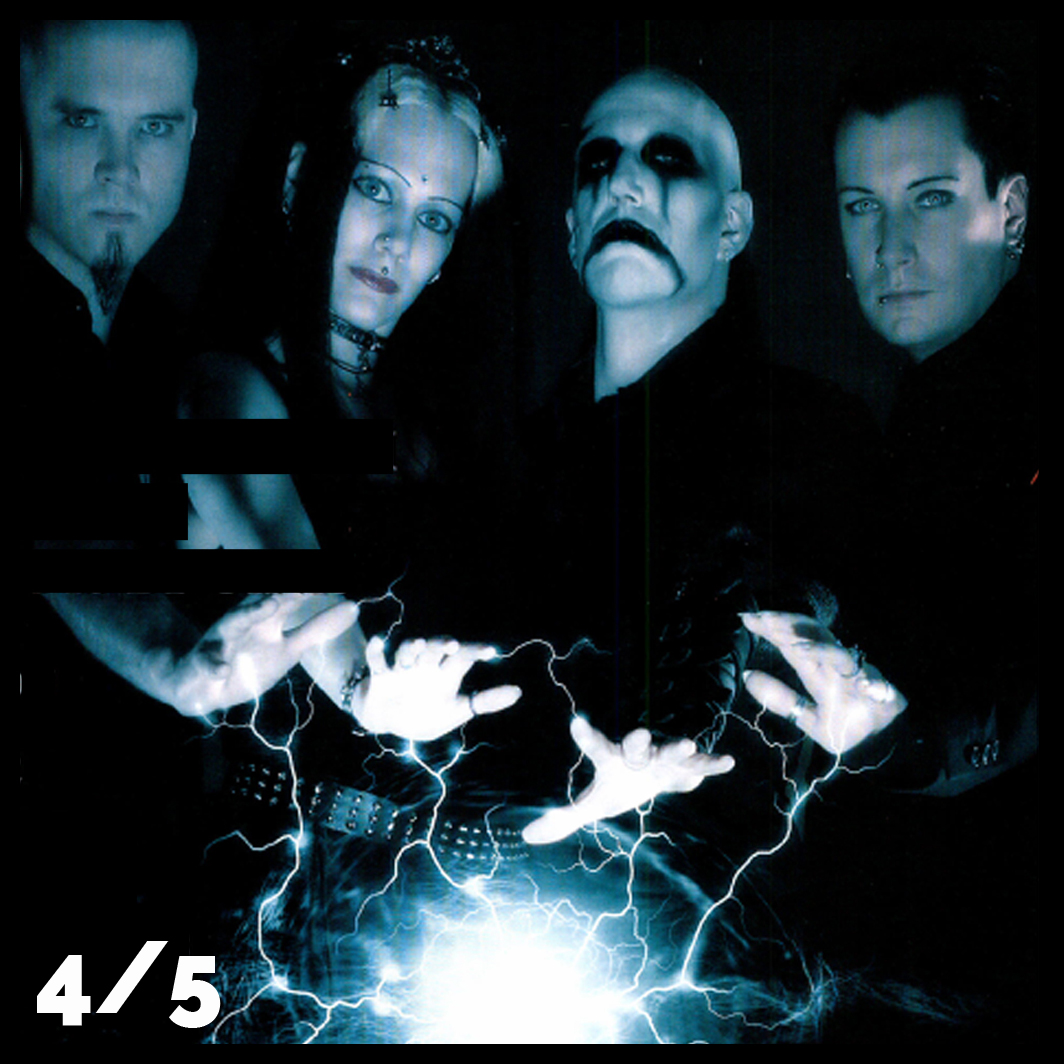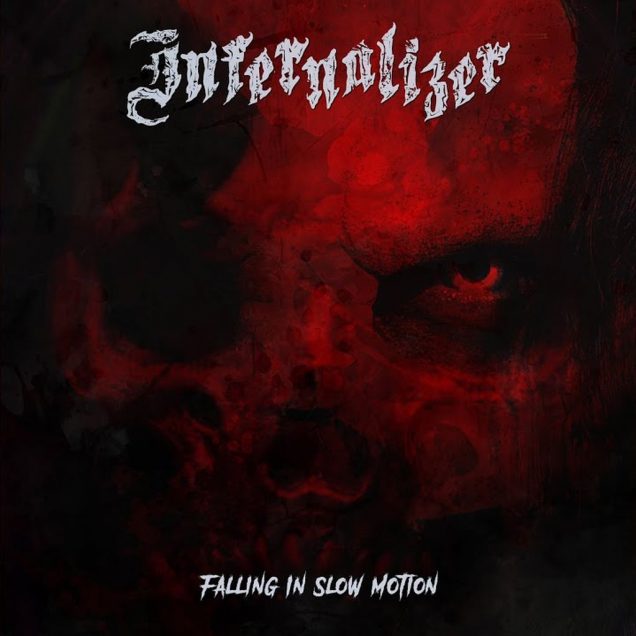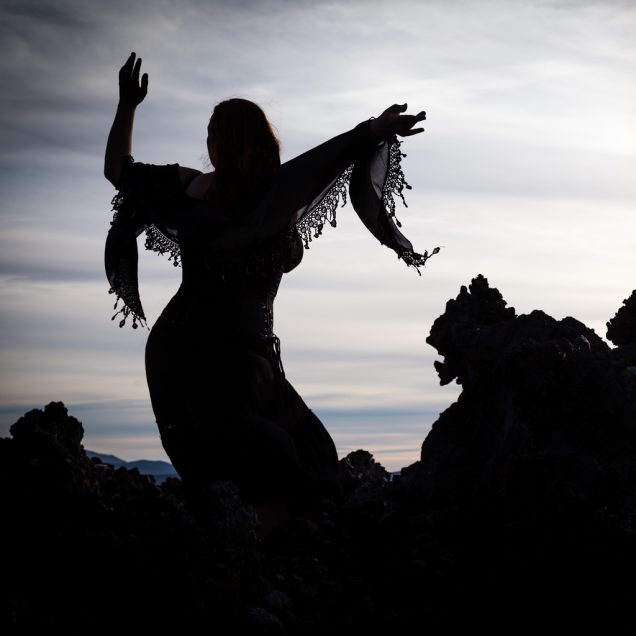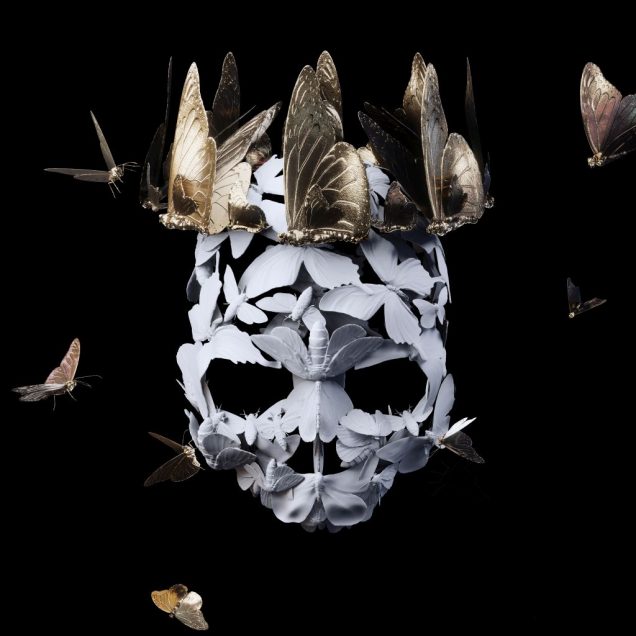20 years ago: ASP + BLUTENGEL + SANGUIS ET CINIS + SAMSAS TRAUM in interview!
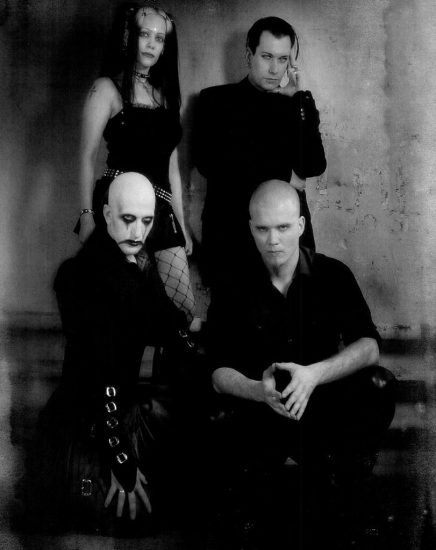
From the spirit of cooperation – part 4
(The following interview was first published in the Orkus! issue September 2003)
20 years ago Alexander Kaschte realized with Samsas Traum with the album “Tineoida oder: Die Folgen einer Nacht. Eine Gothic-Oper in Blut-Moll”, a scene music collaboration in a class of its own. We look back and continue the interview with him, Asp, Blutengel and Sanguis et Cinis. Today we take on the term “Gothic”. About life struggles and clichés.
Asp: “I’ve fought too many battles in my life, especially in early adolescence, to be allowed to be who I am.”
Orkus: Keyword scene: It is noticeable that more and more Gothic bands distance themselves from Gothic in conversations.
Alexander: I myself am not the kind of person you could catalog based on his music. I don’t make this music because I want to make Avant-Garde or Metal or whatever, but because it all just comes out of me. Because that’s who I am and I express myself through music.
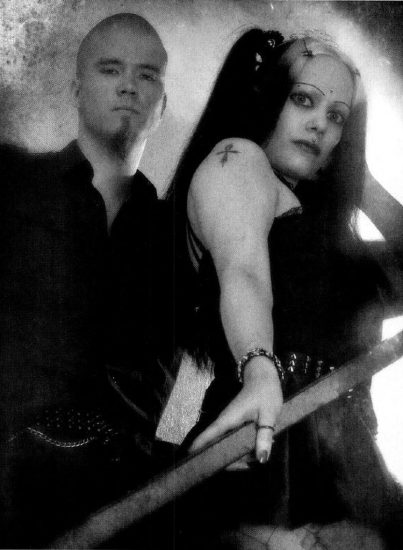
Celine: “On the contrary, it seems to me as if some bands today are increasingly consciously relying on the “cliché” Gothic.”
Orkus: But it’s not just about a style of music or a way of dressing, it’s about an entire attitude.
Alexander: Yes, exactly. Only the problem is that I carry this attitude inside me. That I am like this. And I simply don’t need to show that to the outside world in any way.
Celine: On the contrary, it seems to me as if some bands today are consciously focusing on the “cliché” gothic. It always depends on how terms or pigeonholes are interpreted and from which aspects someone wants to distance himself.
Asp: I’ve seen myself only as a Goth for so long that I wouldn’t want to put it any other way. This is an important thing for me that is part of my life. I have fought too many battles in my life, especially in early adolescence, to be allowed to be who I am. Musically, of course, many other influences are also processed, but I think it all goes hand in hand. My life is black. And when I discovered that, it felt like coming home.
Chris: “I’m just never going to conform with normal society, and again, that’s something that pushes in the Goth direction.”
Alexander: Chris, do you actually see yourself as a Goth?
Chris: That’s a very difficult thing for me, because I hate all these labels and pigeonholes, it’s a red rag for me in general. But it’s about an attitude to life that I discovered and which interested and shaped me. I got stuck there and still have a problem with it. If someone says I make Gothic music, I would agree, and if someone says I make Electro Pop, that would be okay too. I’ll just never conform to normal society, and that’s again something that pushes in the Goth direction.
Asp: I think it’s also a question of inner tolerance. When someone says about himself that he is Goth, he expresses something, namely the willingness to deal with certain things. But I can only speak for myself. Coming to terms with my own finitude and allowing melancholy to be a way of life has led me to say that I am a Goth. And all that the fun society
drifting around us that everything has to be great, no matter how bad it really is, has led me to also allow myself to be so much a part of this Black Scene.
Alexander: And there are also bands that make their music, which in turn is received by the scene. But that doesn’t mean that the artists themselves have to feel like Goths. I don’t know, for example, if the people from Bauhaus would have said of themselves that they are “Goth”.
Asp: There are, of course, extreme examples where some musicians, whom we consider to be original, have at some point said to themselves, I have nothing whatsoever to do with all this coterie and I never have, I wore the black clothes by mistake, all the fog on stage, that was also only because we couldn’t afford any other special effects. I mean that these people have all lived quite well from this scene over many years, you don’t have to say; but I don’t really find it bad on the other hand. We still like to listen to the Sisters, although Andrew EIdritch, for example, has distanced himself from them a lot. For me, that was a key experience, because it doesn’t matter at all whether he shares my outlook on life. For me, this has been Goth. And if he says that wasn’t one, well, I was wrong. Then I slipped into something that he couldn’t help.
Interview: Axel Schön, Christian Hector
Text: Axel Schön
Photos: Jens Howorka
Layout and image editing: Ingo Römling
In one week we will continue with the 5th and last part. Then we fathom what the artists saw then in 20 years, that is, “now.”
You can read the nostalgia review of “Tineoidea” here:
Listen to the album on Spotify:
You can subscribe to the Orkus1.com newsletter here:
